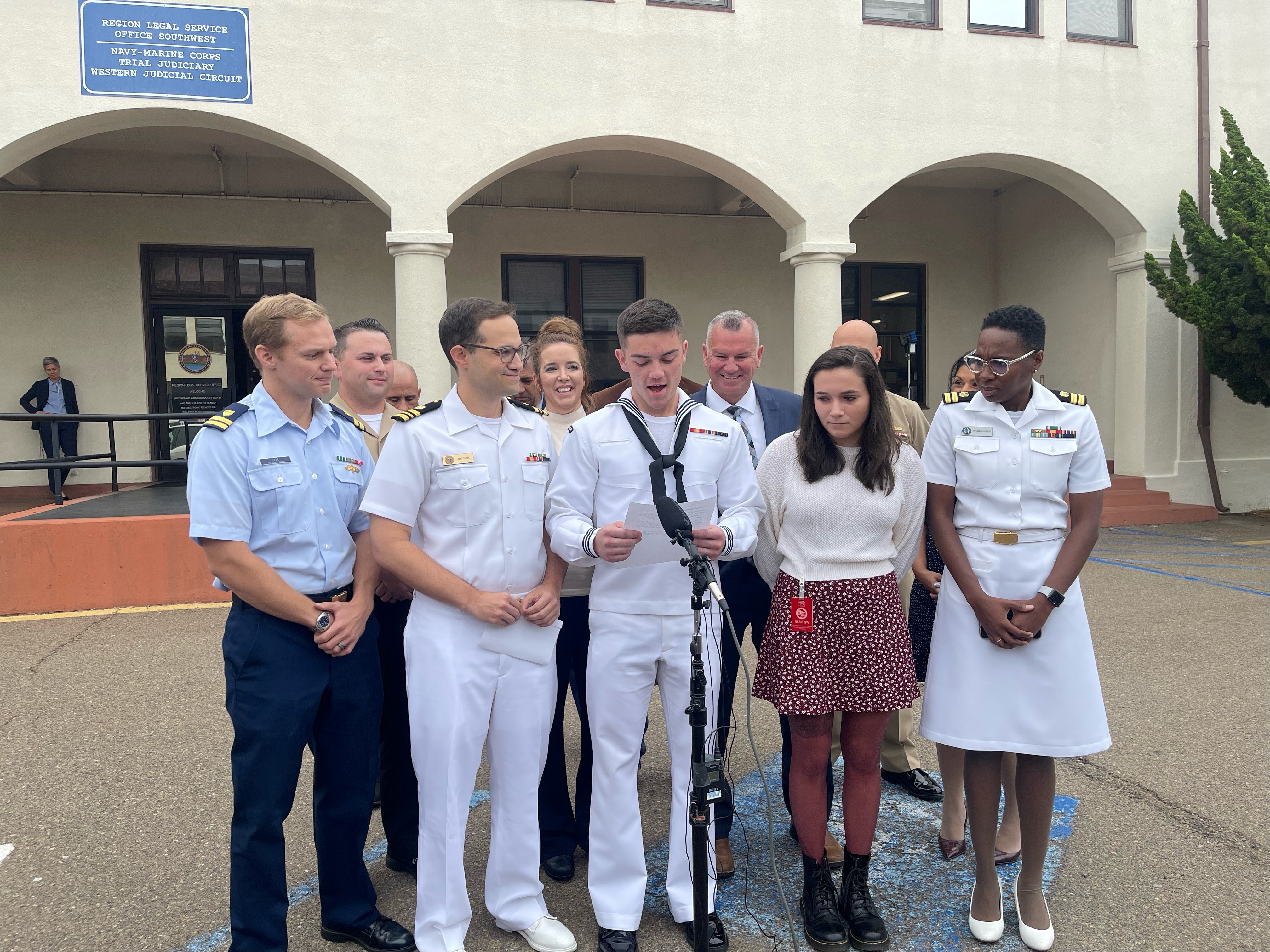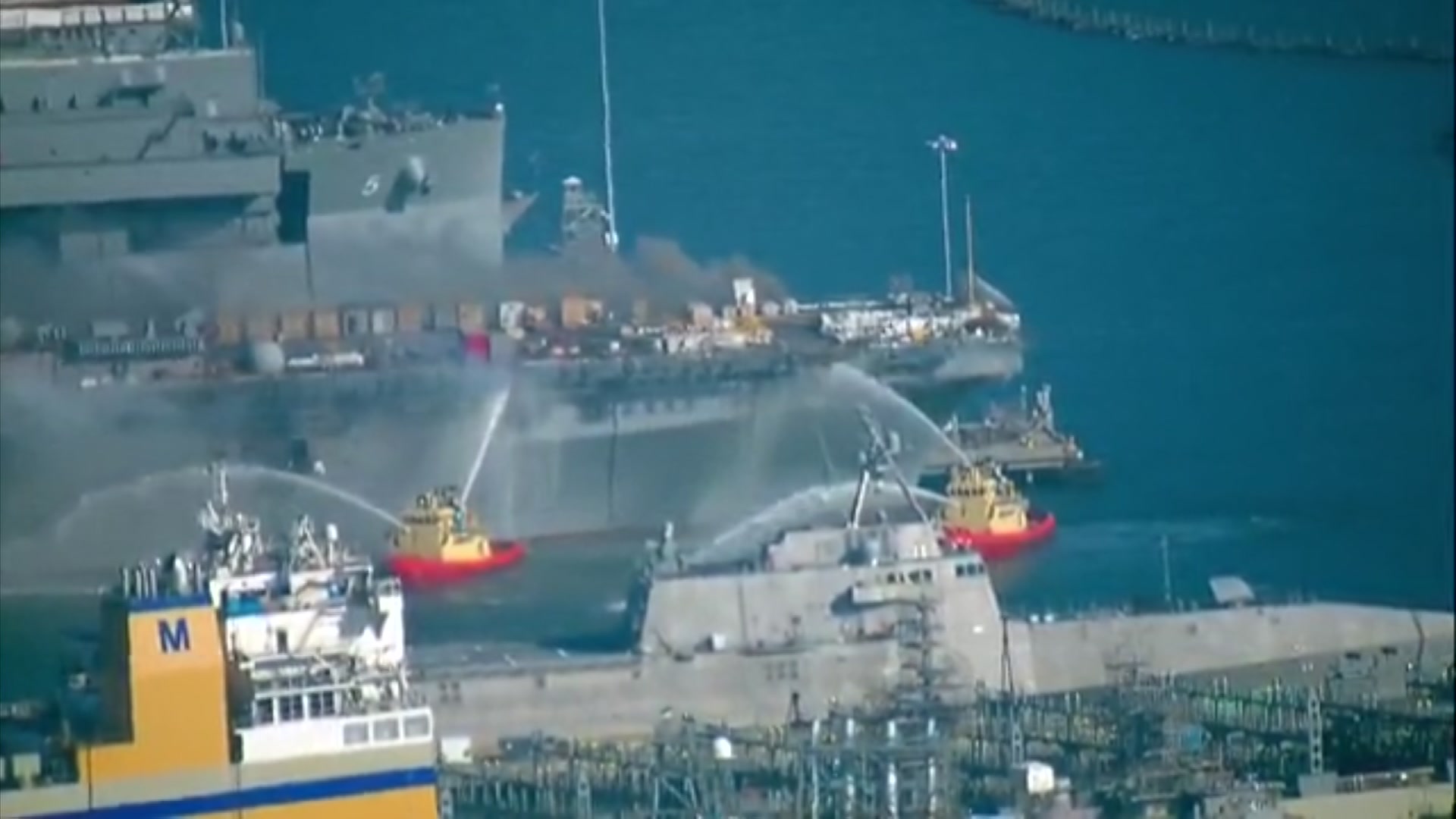Firefighting aboard U.S. Navy ships is serious business, but that doesn't mean there isn't time for games during training.
Naval Surface Forces, US Pacific Fleet hosted Surface Line Week, a firefighter training course that includes skill competitions and the "Damage Control Olympics."
Whether it is just getting dressed, addressing a leaky pipe or putting out a fire, the members of these damage control teams are in a hurry.
"I love it," First Class Petty Officer Javier Fernandez said. The San Diego native is on a team with other sailors stationed aboard USS Tripoli. He likes the comradery and the challenge of competing against his peers.
Get San Diego local news, weather forecasts, sports and lifestyle stories to your inbox. Sign up for NBC San Diego newsletters.
"This is more practical training and it gets that muscle memory going," he said.
Each event in the Damage Control Olympics is timed, but winning isn't all about being fast. Teams have to be proficient.
In July 2020, while in for repairs at Naval Base San Diego, USS Bonhomme Richard was destroyed by fire. Sixty-three sailors and civilians were injured as the fire burned for four days. The damage was so great they scrapped the ship. What has the Navy learned from it? Perhaps the most important lesson: preparedness.
Related Stories
A year after the Bonhomme Richard fire, the Naval Safety Center (NSC) began a comprehensive historical review of major fires onboard Navy ships. NSC identified multiple recurring trends having to do with the cause of 15 shipboard major fire-related events between 2008 and 2020 that culminated with the fire aboard Bonhomme Richard.
The NSC concluded that noncompliance with fire prevention, detection and response policies and procedures was likely prevalent across the fleets.
Damage Controlman Senior Chief Brandon Young and his team of trainers are trying to change that.
"Everyone on the ship is a firefighter. We have to rely on each other to make sure we all come back home," Senior Chief Young said.
During Surface Line Week, sailors feel the heat of the fire, and experience the urgency of on-your-feet thinking and the challenge of live skills competitions.
Because ships are close quarters and made with metal, fires spread faster and run hotter for longer periods of time, according to Young. It's a fact not wasted on Fernandez.
"Actually going here to the school house where we have control base fires and control base flooding scenarios, it reminds the sailors it is real and could be real," Fernandez said.
All sailors are required to pass basic firefighter training. Most receive advanced training once on their assigned ships.
This week's competition included sailors from six ships; USS Ashland, Cowpens, Tripoli, Makin Island and Mustin. The team from USS Tripoli won first place. Their prize, of course, is bragging rights.



